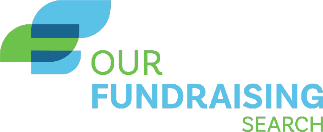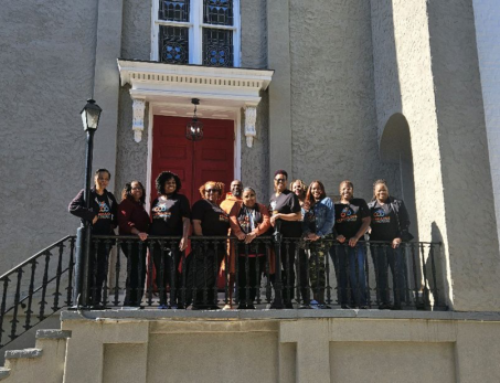In recent years, the topic of interview “homework” (i.e. requested assignments of candidates, typically for presentation at final interviews) has come to the forefront. We’re regularly hearing variations of the following question: “I’ve made it past the first interview, but now the hiring manager has asked me to create a campaign plan, listing 10 donors or foundations that I would target along with my reasoning. Is this ethical? Am I just being asked to do free work? I really want this job – Should I do it anyway?”
Yes, there is an ethical line here. But where is it?
First, let’s discuss what is an ethical ask on the part of the hiring manager/organization…and what is not. An employer is well within their rights to ask questions that specifically reveal how you would tackle each responsibility of the position (i.e. your planning process, how you cultivate donors, solicitation methods, etc.) along with examples. Further, it is also ethical, and actually very common at the C-Suite level, to request sample plans or other work that shows you have the actual skills to back up your first interview and resume. They are allowed to see samples of your work that demonstrate you have the knowledge, and abilities, to do the job.
The ethical line is crossed:
- If they ask for research or plans for specific donors or that includes specific donor information;
- Request for you to create new materials, plans, etc. that goes beyond generalities and that they could utilize after the interview, regardless of hiring you; or
- If the requested “homework” takes an exorbitant amount of time (which is the most subjective of the “ethical” lines) without offer of compensation.
The Association of Fundraising Professionals Code of Ethics specifically states (#20) that fundraisers “Recognize information created on behalf of an organization, including donor and prospect information, is the confidential intellectual property of that organization and may not be taken, shared with, or transferred to other entities.”
Providing donor information or conducting research for a nonprofit other than the one who employs you is unethical, period. Even if it’s an uninformed request, it is still unethical on the employer’s part; and it is unethical on your part if you comply. Further, if you use your current employer’s database, systems or tools to comply with the request, that could be grounds for termination from your current role and possibly for legal action against you. Even if it were not unethical, you are providing free consulting services to that employer, and sending a message that you will be easily taken advantage of.
What if the employer has not asked for proprietary information, but has asked you to create and present development plans, marketing materials, solicitation letters, etc., especially if what they’re asking requires significant preparation time? The concern here is that the organization could not hire you, but still utilize the materials you created, without compensating you for work they would otherwise pay staff or a consultant to complete. Is this a valid concern? Absolutely! One of OFS’ own team members saw materials she created and presented during an interview (which she did not get the job for) utilized as part of their stated strategy on their website.
So, what should you do instead?
- Don’t Assume! We’d recommend that your first assumption is that the employer is not trying to be deliberately unethical. In our experience, it is more common that the interviewer is uniformed, but with good intentions. If you are still interested in the position, and haven’t otherwise seen red flags, have a conversation with the interviewer about how else you might answer the questions they are attempting to answer via their request.
- Attempt to redirect: If an employer asks you to provide donor specifics, attempt to redirect them to a discussion of your processes and approach. Cite the Association of Fundraising Professionals Code of Ethics and your own personal standards. If done correctly, you will be showcasing the ethical fundraiser they would be hiring.
- Offer samples of your previous work: Circumvent wasting hours of your time by offering redacted samples of your work. A sample solicitation letter, the outline of a development plan or printed copies/digital links to fundraising collateral that is publicly available might suffice.
- Maintain your boundaries: If the organization continues to be adamant about completing an assignment that makes you uncomfortable, take yourself out of consideration. It is probably not the culture you will thrive in.
We hear you asking, “Alright, I get it, but what do I specifically say in response to a request like this?”. Your response might sound something like: “I am excited about the opportunity to continue this conversation. As a fundraiser, I abide by the Association of Fundraising Professionals’ Code of Ethics which maintains that donor and prospect information is the intellectual property of my current employer (not myself) and is not allowed to be transferred to another entity. As such, I would not be comfortable sharing specific prospect information during this interview process. However, I would be happy to share samples of my work. Would you accept [insert comparable requested information] in place of the requested assignment?”
Some organizations are beginning to offer compensation to top candidates for time dedicated to the interview process, which may or may not include an assignment. If an organization has requested interview preparation that you are comfortable completing but will take more than a reasonable amount of time, you can certainly, politely, request compensation for your time. However, before sending that email, be sure that you are comfortable with the response, whatever that may be.
Throughout the process, respond professionally and unemotionally. While this may not be the role for you, you never know when your path might cross again with that hiring manager or when that organization might become a partner agency for one you work with in the future.






Leave A Comment
You must be logged in to post a comment.